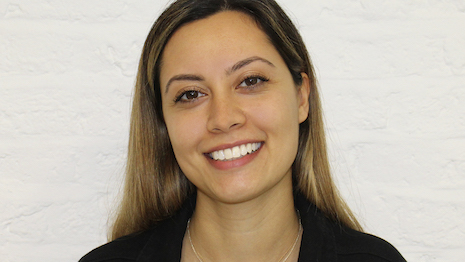By Shereen Al-Auzairy
Popping bottles, cruising in flash cars and toting expensive handbags with six month-plus waiting lists – no, it is not an episode of beloved Noughties MTV show, Cribs. It is how, until fairly recently, we have all thought about “premium” products and experiences. But attitudes are changing – and so must brands change with them.
I have identified the two factors driving this change, and I have got four recommendations for staying front of mind in this new age of premium.
Like most good stories, ours starts with a digital disruption
You may not associate the rise of Uber, Airbnb and Amazon with premium living – at first. But actually, getting exactly what you want and when you want it at the tap of an application challenges an idea at the heart of traditional premium and luxury brands.
By making consumer interactions instant, seamless and personalized, tech brands have turned “premium” from exclusive to empowered. And without the same benefit to trade-off, luxury brands have already begun collaborating and experimenting with tech to create new products and services that do not always come with the hefty price tag.
Attitudes change, values evolve
As consumers, we think differently now. And our expectations of brands are higher than ever.
No longer satisfied with the latest and greatest material things, today “having” has taken a backseat to “being.” Experiences beat products, and brands with a point of view win out against those peddling the shiniest goods or the longest waiting lists.
And no generation has been as influential as millennials. That is right, them again.
Accounting for almost 30 percent of the world’s population and a mighty $2.5 trillion in spending power, this social group gravitates towards brands that reflect their personal values.
Usually expressed through art, culture, cause and social good.
Millennials buy premium products for themselves, not to impress others – which has affected how we all think, act and shop.
Challenge accepted
In a world where everything is in reach, premium brands must find a way to maintain appeal. Walking into this ever-changing landscape unafraid to experiment and challenge their own status quo. Let us walk it with you.
Key takeaways
Shake up the surface …
Where once premium brands were dictated, idolized and policed, today the most successful labels are unafraid to experiment with their brand, challenge the status quo of their aesthetic and collaborate with unlikely partners. Think Louis Vuitton x Supreme for a premium mash-up that consumers can’t get enough of.
… but stay true to core values
Ahem. There is a small catch. Experiment and tear up the brand toolkit, yes, but never lose sight of your unique brand story. Be meaningful. Offering experiences that chime with consumers as relevant, genuine and true to the spirit you started out with.
Who were you before you hit the big time? Strip off the diamond and furs and be that guy or gal again.
Make it shareable
Social currency always stands. Give consumers something worth talking about and sharing with others. Remember, it is less about them wanting to show off, and more about what experiences say about them as an individual.
Think about what is scarce, not what is exclusive
Owning an exclusive means enjoying something others cannot.
But what is really scarce for millennial consumers? How about time, honesty and individuality?
Create unique products and experiences that give today’s consumers more of what they feel is lacking in their lives.
Shereen Al-Auzairy is senior planner at Live and Breathe, London. Reach her at [email protected] .
{"ct":"8uNicXUgk0N36ve2ZiwNG2gARpiBnTy4YIg+r9Dh4I1tbisCeVCCDGKnZxfnBcXp6VjZPFTSOwYSRYTcWAbTzFGj6wh5YV6qAs1vTXa+7ebbbfwmeyYdBgrkUtT8BObx3YHkeKHYi3AVl1mZk0cZtIDQwpvAdzxYxyvmUAWvoPGIxkYmOaMwEucOrQueHZDt3VkaERlIMVGEfZXoalQUS09F4TyATohxHQLbmi8yp8envTa+tAQpQtpqfHPhf+WL4927NEbd2ArAHQTjF\/BTmeLz6ZNnit+0wgzhYskY\/9GDv0WATTNlRELWZ0W1vKcxrpR8fE+5bTSCVmtY9TyKJ1Z7O5pxaS9Wo8ruAT9WiPq716XGVT+1TtpZNjUTf6upF2p4JMAg+Ipga6GqDQiHl2pmNSDZHtbRKhllWiJri+Z5NKRAOLcXig1Gg\/Mr2x1fXIScYLIq5EFESm4FXt+kTA6ynz4b3SgUTFycvB80hYnMd37Cknr6Fs7cMbGN\/7IwuQ8T14SPIE+UalrrlUo8HPo80iWRIdyLhPerzHFLwwEcVzrpqdCbyHUjpr\/OggO3dp3o57EYAhqJG\/ockdo92sJa7ZupUrIqSxbuxOeQ+tKBUN3JeKODUynWanKd1wOp8i+e7lyS84tzSM0\/+rq2Mso7KG82OW7+QzgPWK7ZLgaRIaobaG8EMBacRNc620SbaqK4jZclYMIjEGMHyt+Mw4kea1r9sGXC6CQR++fM2\/0HfyGHULl0x4FHxYJAYrOJTysX2DLU9hr5r5kab7FYbx8ceikvhTpI2EDdogcJnKmCP7qyrwBq34yEwIILE7S0aVUL3s9H2rk9dxMw42TJ\/fU0bG3Ur0feUlCe4\/ShP1vlRb2DHacvo4T5iVE+KJBlzma6a1UaaabCMu\/FsSD4CX0998C+f0WqWd07NnatUFxhsvEoFSwQLmGN12CJBI0DladQtJKs3zXVCtIE\/K4ezKivh21qlmLc0PEX1lUkGdiD2\/FnTpQ8Q2J4zhm5aVGaTbFoEzrwVrCY4JHiryAamLmeN3lvS4HriLmewANTSLGEe8EY1lgTGqdGdWibYbnCfK3UuPjSSVXWVEOo+Lk4pmC17yhxXZCs7LIkzDWaJmZyq78Mh\/WfheS1IpBrjJ19QrwsUuZfrnGz+nCME+gqG0It4nUN5tEhxd9zCNNhUnpVl\/X8h+QAQpUDprRTUtM0QHlb9XLzetYK++SrVqSOGSZINQC1Mo6fNLHSAMg4kNwqJyIYUq0NJgRcd9tkcbvIO5h1Fdr0rU9XsK0V+HeUliDlqLN4EvczA2hrFkiOyEboQKvIbAJeocM4MBVr4FGUKik4pbm9hqHiZNXXf5+LaOoAY5wjYT9uosqCEEOqFXyrSRTT4tHYdxm+Zyhhr6NosyP8LCjbnSTLJhPKFDxYSfAkOCvRseok5i4pk0O7VrgVlba0iEYeXfV4023cUePFwlms4ZGgq3\/l+kutq6w\/GDCKbHV\/6xKCSJDHInUFHWEwnMIt9bKb+ZeEYx3RUTlodrIJTrTVRqmUtBol6sSmwbpngWMz77aB\/2J3B2yBrN4gv0UlGL78SRQsYxOq55I6wr84gyrIScACg8+PenPBpyRthTh9RV8yOtxHD744XDSFcgPQgx8mbmHJwe+Lss5d+8HcFphxjlsIAw64f\/ORfN2x7\/kMBSTfBCJanMX0vpg2PtNa3R7TS9WPDgUwp+eOzXTre62Q+J9FCjcUSd86cd3hxp+KggDfheUveiywMJm1R3sWo7ULk4anZZYuqmoZ2N\/65oz5N9CvvD4yK2m6llF5aLlfZ0\/+nwuY2TxGP2UaMTchmUx7wSgFm3ebZTSW+bgLA3LS665U2EGFe1iv\/P+ipAWl5LCzH6zmSww51c+CH4lWdkT4Sggv9+NjLvsqPk71tvzueDXJQwa4j1v75m7T+rK3WcZnrgjfd4rPHfF0HKDiQqd7U6V7YufLcsf9tHbE+2jdgH2hQAQRFUqFu61kxfzZdnAqnnFu3uFdpWT\/RsC0vqNQqXWdoFIu9O2Eu0wmbBBVTQLWUaIGkuuQMASFLXxd+LWtY9I1fGAeAoxEiIa4U0bUw+HxoqpRgyAQPzBEEfJNX\/9WWMWZelc74KOGSke3fIGcsTI7QxrrXW2Hj0HbnrFDsVrqhxW\/GGFn8qu4l\/gwHGAVcUz7VSbansv\/qx65rCch+f\/75+BkWPucrj\/+igIGDZUwYiLB2Eeuzv0EY4y5lxVFwhGtYDr\/wmB4ji\/v4A+3UWYx+\/\/R4BnDl2qRr\/SN8ge+zPMQg1\/4cCnpqAF+GpQieJjflVuxNNTOkzDScJ5dheiV1+Zn1izqkFg8EbvcsKsW9dZrInoM6gfuhszmIIHH11bi2QvtNHa+Co9cSBrcJqwF+hpZi6qvEP\/xv+ZmaSZ2fIHeMNlnHLB+lqC+oy\/W6xkIjQKU\/oHMoJpgYuFfUYBGp6Sw4sFdKqN\/a4bTfUjUhP\/S88al8g\/Dp0adEWHjCShdtbSFx1Eikj\/Eawp9wFgc7Aa21UM03a1YuRkbdAnSZbybtW6gD+p8t3WqK3w8w3ahVQcDpWpre3+IUTBQcXRoFEeXGSrk+f7RZQwPvnq4VygIOiGyvm02mw910mF8h0gf2Z6mpzTi1uxBqztaNd+BjY25ljwQO2gHDEhAMoZ7zOqEpNj\/28iFMUwE9Q+Oe1BB1FGB7DxN5Bz9BEZzD02Tp\/9ots6TrHJ2YsYx8l12H1bBUDLuc7q3c31JFPq6lk3azrS7x\/\/A+6lHxJNb9tNcV+UvyLsUqLcnJD3OXlZrqYU\/P4iuZh1YrqNMj2S7zbYwgu9OOEnBreB94\/7caLWjh8V9J21sMV519kIvBiFVoVjdNbhoa+AbXxSEQi\/u9ygH3XZ+KZRdVmpoLvGxLMl96QL50YsCoQXBixGUp8owlNxg1rfUR8\/f5NHFmwGwqwiQarNEu3CdPy571ecQ7VaAOpDLA+LWER8z7M8jiQUAxy1CuhZFCHwhKnLXvi75JziA4QE9EdN3Znb6SMRGOF9AfEXtkCC6fXr+Dpt\/m2IeK2qIcs6f3zDa5DTr8fbcjJhFn45D8frCT1enUh4c\/o6zDAg4vd1elmrTWcOFI\/XzMk8D5bv2trhS34bBUfZRywlAzwQAlhNl6kab2gY3V5DOQ52haP+1gPdYKnw2EZiC5Cs1lYojXXIOT8djDyRqKvRwAXKSitBoZjZJucbOFdaQ1\/GEm3S+AJ8BzcjFlOtNsewf4NiE1gxGiAu5TjKSZpeHIdrhhzKrkEziOWHyt1e+fUDxsAt976ixxWB+VKGxXEXYNcPjcKAwGxhIIUXcWkVlJcjhZF3HrUWhQWDVCtUxoyWsEwkRBYxuC8JBVbKobiGm3nR1T5ayxR1W2sAbzgGdaQkFSIXyVtKcWoW0vd4fJRMS4hK3nT2SOegiks5UFSEGPk5D0AR2\/hAmx0qVCL6UXrX88zOJU1idD8O\/9EXA68B3VaZqN3fqENMXSRxcOoIvK5eUOT4JM4OD9QIJQXOqDXt0S7I5qk8NiYzlKmxHsd+YvrsyPj4sO8TeGSO5hqOP5ACDK8MLAEBeemNPvwN94Si9E+mGb78JvTCKGr6mA+8fbd3XM71D3aVGCeMldO9lap\/ilE4b4tA9ZORvpmsoa30llZ6sxx4mGG4fmEqd2ercqeNnnGIIYpuG3xnWLFH3MXI8ll9X5So2Pvy0AWdiQCNlpR96mOVKJclEFgqnuGRduO\/o3RzdqtjMxBszoh1wrPUUo0bgyAPNtmRDlOcvj5Ihnvk8j9++ZXvXB6vi5t7XEb0YuR1R6qp4aBC3\/TW2hhaOLMdZCfHLItQhWJ3iklR01Pq6ODd1EFHuR4xReZxwTUhUMdP3l3tHdB2bd8el9rHqrl5Z3Dbke6HFzodXeNITvTrnqEwUhM+k2wKmvegtPLgXLHnf3+02roN7sW82MD03RbPq3Xdf4kYO1uk1G8JCs+\/cX383SPjdnU5XuVCsDcj43dpoGfZruINt+h2F7ghc3SAJE7+5nTZFZxSQfDZGyYUK7S+GjunieGEG3\/btvKkkqC7SCr281en80duhWmlUOodq5sYNiZZ+CDObJgBpVGL1ICsujY9vXdyWYQGTcfn2BBD8SnJdKjlPZKdVUOORsaw3bc6DsdttrKKwFEpTdhgytROmilLPIKVZY3yrvvjy3Qukm4IdoAumEHhFcnqOeakVWzrZSTzDgPp8qCAom4+CPzIpZojQzllBePBtmncOwZ\/Lqrvk\/thTsf+zMGeVpHUwflKLyhAXklRHRPR5jwqPZ0v9OFPd0fLyL7lqwkUb2JEAoHymxdgT3FKOrKfjIMSPumfpqNO0JKgAYrhKUa8dMKH9k+J5VI3gCxPVb9Fl4GTe8OAhbH+3w92Fi6JItH8EP6hzqcgblMbgUbMo4gbR4mgNtLS3D76nNGHUPiNZa3k5Z4H2q32vQ8UHTYrGi9YSeSPQSEC2z6x6GyqoH\/EAuabuy3dQfUoNV023A941kUg\/HTHvumxz6VqJlv8kZZKZEEmDoSL+\/xH1C5YCbhB+9zQTb5CmxHLQJBZH\/GQih1i9rkG8qOW6ktbl89Ley33zka6Jtvw0QwyaTJ5XKfHy2DFtZyXFiq1eomFH+rYlU8OkQ3nX8Xq4FGamMBGST3vBcggHU8B7czdkJyuxC2YvsllxnQBNkLrwCa1EyvxGxLuKSw7vq\/I0druDUfPt+GZdx7\/QVcSx7v8uutN5KxkDlz7ZRdFcpKoe9NGJ+PgoT92Hxx0+6CLvr1V5BwFE5Q5JnGsBbRccGDGYRoPuJk2jEHWfRnBXEBloN+tuZwVc7zXlWzgIRELWVfZja\/zFzUdZfJvBztojImBDMMB5S193EmzH1d3aMYbe1ivDYzTIPBIponSFsHj35TRyON69Vv6rwYP7Fj1hTcmR2obMH6x82cNPJhYpx1pVqC80f8dNTOOk6E9P74KUTtbgmvf+g+EmDxF5sfnQeUfsFKcUyamcExoAhuWC26nQ7s55I+X0md5tyq6LTJJGlgGsxq0NY4iZYxubd1d5XpzYWwQfoLx8566QDA72LYcZ64wzAP3+6fUWQ4yFvsKxS10nBDZs73XZiEDgVp+7fCQP1\/kUvTfiBrE38Q1LUZ0o6bBiqp5QNJmKNSXuTsgIRaBgs0N+MzDs0AWpz06wnNbGuh4Wj19giGIU+EEDi4lcybteCE6Sib2zBJCiablUJG1V0tc9+fEMVeEqUXHtsJVRMXLwfuKOYaSaeixd450+ly58PCNvuX5+fIt7otKboOnrWz921r4K89r\/Mbbb2C4eGt49OMRQFVd11L+CxFqjKE8T+fL0sh34J4EVZRp\/y109LZ8z1D7yQH+aZjOEIJUVjjSmLOLI8uMdFd09UFUnLMbZAvi1XBnmZBGPTvelpvDFamv0gp2NrLE7xhYONtN6cUwnpFRnHaJTvGRIkaegGRIzfB+0Gj20OvMS+5tmqz70iRrtt4tcArYQ2XZm2YE2A6rS6DjKr4JuY3J2YIJAtjOY5PUApaHmiUHWcJPLCu4kL6rOUpIZ+BgYJTK5uaeeXhTE\/oFwMr5A5LHjekvzSlfaXCv9HTqUrAXVoNXneFPSa1CCjLzWZ9wnOlzHst4STBy+0TppKqQpPP62ZYQq0hJ1zFPFzwsRwV+yE90Ly+pBUi+Jp4Hc1ja2CVN8iqP90kHWmRGFzli+yqjnrkbOpBZzoq5GG77pnv6rxQwP2BRZ7AR+78JcuWScZKqKkPqvfOhtWwqyBoyCClIiRv\/Yw\/DYjA0eS0QijXbq3VUWbOiXF5mVjTCor0e9OayuGrqbbxCAIia603xV6Wu75B+He0yQoU6sjnd1pnRnST6JwL8Bt5ZEWQqerkou7NtqDPeIJV7N5DSiK+60cbjVdoNWZZ4lGRdLxSPnDNpgMT7T8VpgtyDALYcHh7Fg\/JToO4PpX\/uySQ==","iv":"e77105a80ecb430421e615e746ed897e","s":"b83e92ca3ce489a3"}

 Shereen Al-Auzairy is senior planner at Live and Breathe
Shereen Al-Auzairy is senior planner at Live and Breathe